- Home
- James David Victor
The Kepler Rescue Page 10
The Kepler Rescue Read online
Page 10
Solomon had seen the adverts back on Earth, of course. Glossy, airbrushed photographs of young moms and dads with their earnest teenaged children. ‘Are You Looking For A New Start In Life? Do You Want A Secure Future For Your Children?’ and so on. The deal was a five, ten, or fifteen-year contract that would see the families become expert station-ship operatives, and reward their children with specialist training skills such as astro-navigation, space craft maintenance, logistics, or communications.
It sounded like a pretty good deal for a young family, if you didn’t count the fact that the deep-field ships were also the ones most likely to be targeted by raiders—rogue bands of mercenaries and criminal gangs who had managed to launch their own spacecraft to seize, kidnap, or ransom the precious materials inside.
“We lost contact with Kepler just after the Erisian Asteroid Field, so your search will begin there. You will deploy in scout-class Marine ships, and when you have located the Kepler, you will attempt to ascertain what happened to it, and whether there are any survivors,” the warden barked. “This might be a case of emergency response, so I want every squad to be carrying a full medical kit. Or it might be a firefight against the raiders, so every squad has to be ready to respond with deadly force if threatened. Your goal is to locate the Kepler, and to return its crew and merchandise safely to Confederate hands. Got that?”
“AYE-AYE, sir!” the congregation of Outcasts roared.
“Then repeat after me, the Marine Oath.” Warden Coates led them in the standard litany that they recited every morning during their audience briefing.
“Through blood and fire, I will still stand strong.
“I will stand at the borders and the crossroads, I will stand strong.
“Even with the eternal night before me, I will be the flame!’
The lights over the hangar doors started to flash green, and steam hissed out from jets at their feet as the warden and the rest of the staff took their leave. It was a fairly short speech, Solomon thought, and he wondered if that counted as an inspirational ‘pep’ talk in Coates’ twisted little mind.
With a grinding noise, the double-doors creaked open, revealing the industrial-looking insides of the Marine transport ship on the other side. The cargo hold was filled with pull-down chairs with webbing attached to the walls that they were expected to clip themselves into, in squad order.
“GO! GO! GO!” the speakers blared at them, and Solomon was running forward, leading his Gold Squad to their second mission on behalf of the Confederate Marine Corps.
Just as before, their Barr-Hawking jump-ship awaited them in the sweet spot where the pull of Jupiter’s massive gravity well was met by the pull of Ganymede and the outer moons. It was in this place, where the different ‘tides’ of gravitons almost balanced each other out, that was the ideal place for the Barr-Hawking ship to fold space-time.
Pfft! Pfft! Bursts of gas-propelled wires and magnet clamps were fired back from the giant ring that completely overshadowed the small ship, surrounding it like a god’s game of hoopla. With dull metallic thumps, they slapped onto the reinforced nose of the box-like Marine transporter, and the four particle generators at each cardinal point of the ring started to fire.
If Solomon or any of the other adjunct-Marines had cockpits to view what was happening outside, they would have seen something strange starting to happen to the light around the Barr-Hawking ship. The distant stars on the other side started to double, refract, and split apart.
With all the balletic grace of deep space travel, the Barr-Hawking ship fired its thrusters and started to move forward. Its magnet clamps transmitted the exact overrides to its passenger’s engines and the other ship matched its forward propulsion. Behind them, Ganymede started to grow smaller and paler, and Jupiter became just one giant crimson eye.
And then, Solomon and all the other adjunct-Marines on board felt the first wave of vertigo that heralded space sickness, the primate awareness that you were doing something that your biology should never allow.
The particle generators of the Barr-Hawking vessel created enough turbulence at the subatomic level that it created a ripple in space-time, a ripple that folded the fabric of space, allowing normal travel to eat up lightyears even as the body of the craft moved at its regular pace.
In his seat, Solomon felt as though he were shaking, although he and every other member of the Outcasts weren’t moving other than to shuffle uncomfortably in their seats. The webbing across their chests held them tight against the chair, and the main cargo hold was cold. No in-flight luxuries for the Outcast Marines.
Just as Solomon’s nausea spiked, and he was sure that he was going to be sick, the ship shuddered and appeared to have reached a stop.
Are we there yet? Solomon’s frazzled thoughts made him feel slightly hysterical, but he was answered anyway, as the holographic commands scrolled down the inside of his visor screen.
Mission ID: KEPLER
Strike Group ID: Outcasts, Adj. Marine.
Parent Fleet ID: Rapid Response 2, Confederate Marine Corps.
Squad Commanders: Cready (Gold), Hitchin (Silver), Gorlais (Bronze), Hu (Red), Nndebi (Blue), Walters (Green), Mendez (White), Suriman (Orange), Khan (Purple), Lovelace (Gray), Molko (Fuchsia).
GROUP-WIDE ORDERS:
Proceed to Hangar Launch Docks.
Receive Command of Marine Scout Vessel.
Follow Search Protocol Pattern #3
Well, this is new, Solomon thought as the buckled straps of his webbing automatically unlocked, allowing him to float upward a little in his chair. “Damn, this ship hasn’t got any graviton generators, has it,” he muttered to himself, earning a wry chuckle from Karamov beside him.
On his visor, the flashing green-gold line indicated that he take his squad not to the main cargo doors that they had entered through, but instead up the metal stairs and through one of the doors in the balcony that overlooked their seating.
“We have our orders, Gold Squad,” he said, using his hands and feet to push himself off and swim through the air.
All of the adjuncts had been through hours and hours of zero-G and near-zero practice, but it wasn’t without a few muttered curses and collisions that Solomon managed to ‘swim’ his squad over the steps to hit the door controls.
The Marines really aren’t offering any luxuries on this flight, are they? he thought, realizing that they hadn’t even bothered to pressurize and atmospherically control the internal corridors of the transporter this time. He wondered if that meant that Marine Command regarded this as a real emergency.
Three or four squads were directed to each of the doors, and as soon as Cready had gotten his people through, he realized why. On the other side, there was a long metal corridor with chrome handrails on the inner side, and with four large bulkhead doors facing outwards, and pressure-sealed.
Those must lead to the scout vessels, Cready saw, following his holographic arrow toward the farthest door, there to float in the corridor, holding the rail as he waited for his squad to form up.
“Okay, I’ve done my basic piloting in command classes. Anyone here got better experience than that?” Cready asked.
“I used to pilot freighters between the satellites and the space elevators,” Kol surprised Cready by saying. It was weird thinking of any of them having a life before this, let alone the life of a space transporter pilot who had regularly traversed the complicated and busy spaceways from any of Earth’s three space elevators and the blanket of satellites that constantly moved through the upper atmosphere.
“Good enough for me. Think you can handle a Marine scout?” Solomon asked.
The suited Kol shrugged. “Can’t be more complicated than a two-person hauler, sir,” he said, and Solomon could hear the grin in his voice.
“Commander Cready,” this time it was the absurdly floating megalith that was Malady’s turn to speak. “I believe that, although not against regulations, the Marine Corps will expect that their own Marine training will be
sufficient to perform any operation in an away mission.” Malady’s tone was precise and exact.
“Which I guess is your way of saying that it should be me piloting that thing, because I’m the one that has been given the simulation training?” Solomon said.
“I merely mean that if we wish to avoid the ire of our supervisors, Commander…” Malady corrected.
Well, Solomon could heartily agree with that sentiment at least. He knew that Coates, at least, would be looking for any dereliction of orders on his part, but he hadn’t been given a direct order to pilot the scout ship himself, had he? And besides which, he made up his mind. “Well, I take your point Malady, but right now, I would feel far more comfortable if we had a Marine behind the wheel of this ship who had actually flown a real spaceship, not just a simulation.”
“As you see fit, Commander,” Malady said, and that was that. When all of the squads were floating in front of their bulkhead doors, the lights over each turned green and steam suddenly hissed into the corridor.
“Brace!” Cready called out, as their room was pressurized and their metal combat boots thumped to the floor as the atmospheres inside and out equalized.
“Looks like they’ll even give us some breathable atmosphere when we’re out there!” Cready tried to sound ‘peppy,’ but none of his crew answered him. Fine. He started to wind the crank that released the bulkhead door. More steam followed as the inside of a small craft on the other side was revealed. Solomon suddenly realized it must be docked on the side of the transporter—alongside ten or twelve others—and not inside the transport at all.
“Kol, up front with me.” Cready jumped down into the craft to find that it was remarkably simple. A large, slightly wedge-shaped tube of a ship, with one pilot and co-pilot seat up front under the cockpit screens, in front of desks of controls and levers. Behind the piloting seats, the stations and instrumentation continued with another chair waiting to take one of the Outcasts, which Cready guessed had to be comms, navigation, or technical.
“Karamov, technical seat behind us,” Solomon indicated as he strapped himself into the co-pilot seat, allowing Kol to take the pilots seat.
Behind the ‘command’ end of the scout vessel was a very small bay area with storage lockers, a spare seat with no designation, and then a set of metal stairs leading to the engine rooms.
“Malady?” Solomon called.
“Aye, Commander, I understand. You want me to talk to the engines for you.” Malady thumped to the floor, barely fitting down the central bay, and disappeared down the steps to what must be the engine room.
Well, actually I wanted someone back there with enough protective armor who could handle it if there is a malfunction back there, Solomon thought. He also remembered the way that Malady had managed to talk to the Ganymede mainframe computer—Oracle—merely by connecting to one of the many ports on his suit. It paid having a cyborg member of your squad.
“Are you seriously trying to tell me that I have to play nurse, then?” Wen asked, moving to the only spare seat left, the empty one underneath the overhead storage lockers. There were apparently two pull-out medical gurneys, and a host of spare equipment fitted into storage boxes at foot level. “I bet it’s because I’m a girl, isn’t it?” She was not impressed, even though she did have the exact same first aid emergency training as the rest of them, and she would be able to cope admirably as a combat nurse when they came across the survivors of the Kepler.
“Not a gender thing, just short straw, I’m afraid,” Solomon said. “And besides which, if you look at the bay floor, I think that’s the exit hatch to disembark. That means you get to be the first to jump out at any enemies if we have to do something up close and personal.”
“Now you’re talking,” Wen muttered over the suit-to-suit controls, before settling into her seat.
Right. Everyone’s on board, we’re good to go, Solomon thought, looking around at the co-pilot’s dashboard as he tried to remember his lessons.
Which of course he could in perfect, crisp detail.
Solomon had never stopped to wonder how he could memorize the floor plans of museums and private corporate banks with such ease, nor how he could memorize the individual circuit diagrams of various security scanners and sensors, back in his previous job. It was one of the many natural aptitudes that had meant it was easy for him to become a thief, and easy for him to decide to go to New Kowloon, but now…
With the addition of Serum 21 to his own genetic structure, Solomon wondered if he had always been this good at recalling every detail, or whether it was his mutant, extra genes that was making it easy for him to pull up the schematics of the scout craft controls in his mind, from a memory of his study hall and command classes.
“This should be the one then.” It was like having an invisible manual inside his head, as he started running through the decoupling procedure.
The hatch that led to the transporter bulkhead clanged shut automatically and whirred into a pressure seal. Then there was the dull whumpf as the engines far behind them fired up.
“Engines working and all good to go,” Malady’s voice informed everyone over the suit-to-suit comms.
“Malady, I only want a fifteen-percent injection. Keep the engines on a low burn until we’re clear of the transporter,” Kol said, sounding suddenly calmer than Solomon had heard him sound for a long while.
I think Gold Squad just found our pilot. Solomon grinned, listening in as Kol directed Malady on the precise running of the thruster engines. The young criminal Outcast had taken to his position with ease, as he started warming up the positioning thrusters and counted down.
“Three…two….one…decoupling from parent ship. Decoupling now,” he called out loudly, lifting the flight handles very gently toward him and easing them away as the scout vessel juddered and suddenly felt—different. Untethered.
“Technical!” Kol called out with a little more urgency.
“I’m on it.” Karamov’s hands moved over his own controls as he at last figured out how to throw up the overhead display of the scout vessel’s sensors. Suddenly, Solomon could see screens of smaller graphs and images that showed a three-sixty view of the other scout vessels nearby plus the much larger transporter ship hovering behind all of them. To Solomon’s eyes, the scene looked like some alien mother-bug was sporing its insect offspring around it in a cloud of movement and activity.
“What are all those blips?” he asked, looking at the holographic overlay on the screens above him. In front of the scout vessels, there appeared to be a cloud of smaller markers, indicating…something.
“Ah.” Karamov didn’t sound very pleased. “That would be the Erisian Asteroid Field.”
10
Raid!
“Evasive action!” Kol called out. Solomon beside him in the co-pilot’s chair thought that he really should be feeling more of a reaction to this apparent emergency, but since it was the third time that Kol had called this, he just knuckled down and concentrated on working the sidereal positioning thrusters.
The Marine scout spun on its front right thruster, sweeping its larger engines up as though it were about to tip back over head, and narrowly avoided a large chunk of black and silver rock that had been about to take out their engine room.
Not that Kol and Cready’s quick maneuvers got them out of immediate danger, however, as they were now about to be sandwiched between two much larger asteroids rolling towards them.
“Fracking stars!” Solomon swore, as Kol punched the firing buttons to the main thrust engines, sending them shooting forward out of the way of the giant pieces of space rock.
“Three o’clock starboard!” Karamov called out, indicating that there was another imminent collision about to happen. Solomon hit the starboard positioning thrusters, and the vessel rolled out of the way, accompanied by Kol firing the main engines to throw them through an opening in the asteroid field.
Watch out! For an awful moment, Solomon didn’t think that they were going t
o make it. It would just be his luck to get flattened by a giant piece of space rock out here on the edge of the solar system.
Almost…
“YES!” With a whoop, Kol had managed to plunge them out of the underside of the field, and for a blissful moment, their screens cleared as they entered a much larger area of space, bare of murderous bits of rock.
“Technical?” Solomon didn’t waste any time returning to the mission parameters. “Any sign of our ship?”
“Scanning, Captain,” Karamov called out. He cast the scan results to the overhead cockpit screens as Kol repositioned the craft to look up at the asteroid field from their current position. Distantly, Solomon could see the small flashes of light from the other Outcast scout vessels as they bisected and quartered the field from above.
On the screens above, Solomon saw two images from Karamov’s scans. One was their own, a radiating green circle that did little apart from highlight just how many bits of metal-pounding rock lay above them. The other, however, was a much larger map of the Erisian Asteroid Field from above, with many such overlapping, radiating green circles.
“This is the Fleet scan chart,” Karamov called. “They’ve already covered about half, running from the Sol-ward end out.”
Solomon muttered his agreement that he could see. None of the other crews had apparently raised a hail or a distress signal, so he had to assume that no one had found the Kepler station-ship yet.
But how is a thing the size of a small town hiding out there? Solomon wondered. Even if some of the asteroids were so large as to be almost moonlets in their own right, the sensors should have been able to pick up the more complicated signatures of metal alloys and poly-plastic. Not to mention the electrical transmissions from the ship.

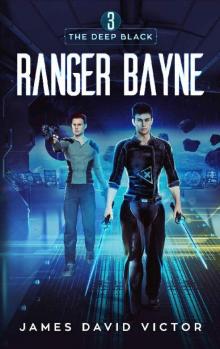 Ranger Bayne
Ranger Bayne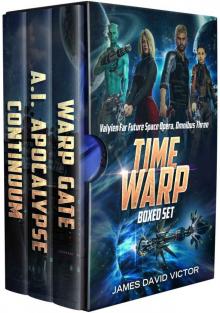 Valyien Boxed Set 3
Valyien Boxed Set 3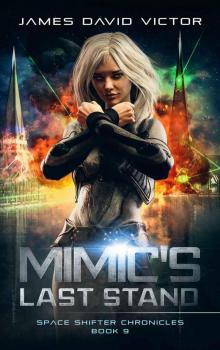 Mimic's Last Stand
Mimic's Last Stand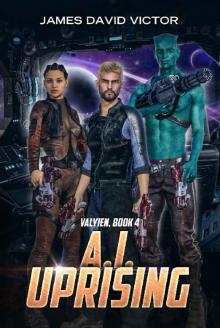 A. I. Uprising (Valyien Book 4)
A. I. Uprising (Valyien Book 4)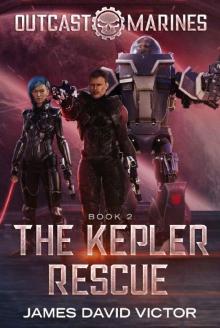 The Kepler Rescue
The Kepler Rescue Last Stand Boxed Set
Last Stand Boxed Set Challenge of Steel
Challenge of Steel Mimic Saves Her People
Mimic Saves Her People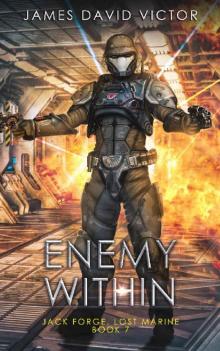 Enemy Within (Jack Forge, Lost Marine Book 7)
Enemy Within (Jack Forge, Lost Marine Book 7)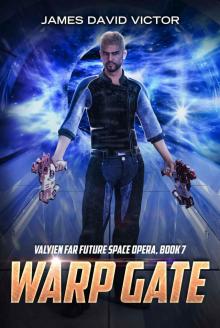 Warp Gate (Valyien Far Future Space Opera Book 7)
Warp Gate (Valyien Far Future Space Opera Book 7)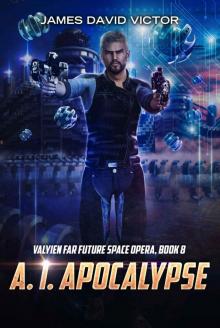 A. I. Apocalypse (Valyien Far Future Space Opera Book 8)
A. I. Apocalypse (Valyien Far Future Space Opera Book 8)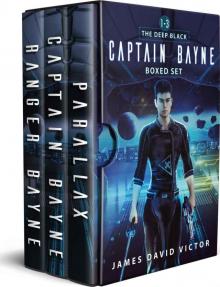 Captain Bayne Boxed Set
Captain Bayne Boxed Set Blue Star Marine Boxed Set
Blue Star Marine Boxed Set Night Raiders
Night Raiders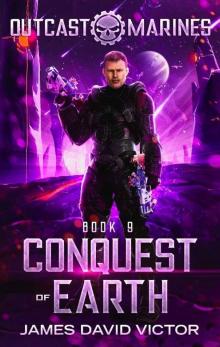 Conquest of Earth
Conquest of Earth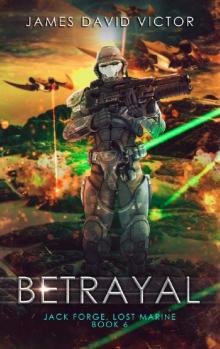 Betrayal (Jack Forge, Lost Marine Book 6)
Betrayal (Jack Forge, Lost Marine Book 6) Sharpe End
Sharpe End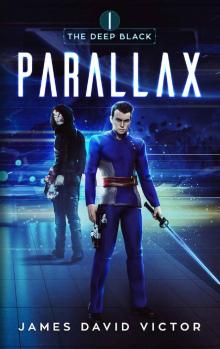 Parallax
Parallax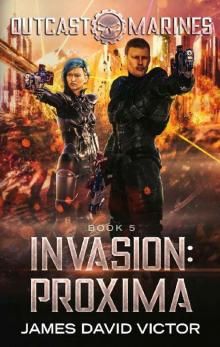 Invasion- Proxima
Invasion- Proxima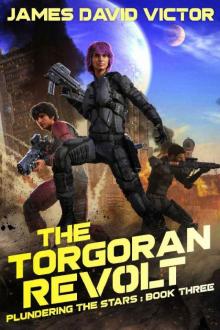 The Torgoran Revolt (Plundering the Stars Book 3)
The Torgoran Revolt (Plundering the Stars Book 3) Outcast Marines series Boxed Set 2
Outcast Marines series Boxed Set 2 Outcast Marines series Boxed Set
Outcast Marines series Boxed Set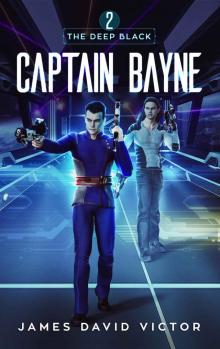 Captain Bayne
Captain Bayne Outcasts of Earth (Outcast Marines Book 1)
Outcasts of Earth (Outcast Marines Book 1)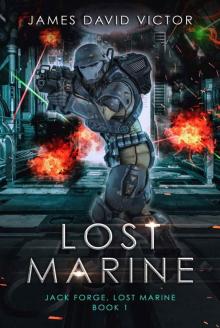 Lost Marine
Lost Marine Eternal Enemy
Eternal Enemy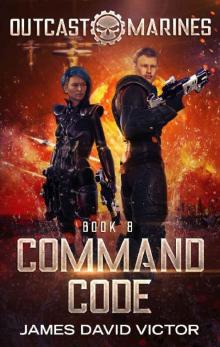 Command Code
Command Code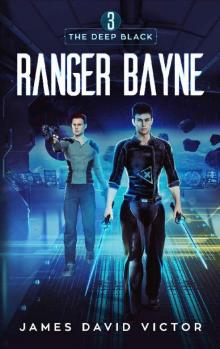 Ranger Bayne (The Deep Black Book 3)
Ranger Bayne (The Deep Black Book 3) Mimic: The Space Shifter Chronicles Boxed Set (Books 1 - 9)
Mimic: The Space Shifter Chronicles Boxed Set (Books 1 - 9) The Deep Black Space Opera Boxed Set
The Deep Black Space Opera Boxed Set Federation at War (Blue Star Marines Book 1)
Federation at War (Blue Star Marines Book 1)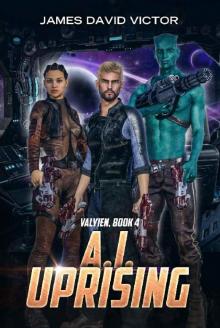 AI Uprising
AI Uprising The Xarren Escape (Plundering the Stars Book 2)
The Xarren Escape (Plundering the Stars Book 2) Valyien Boxed Set 1
Valyien Boxed Set 1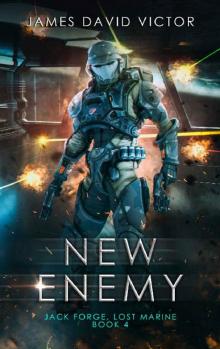 New Enemy (Jack Forge, Lost Marine Book 4)
New Enemy (Jack Forge, Lost Marine Book 4) Alien Legacy
Alien Legacy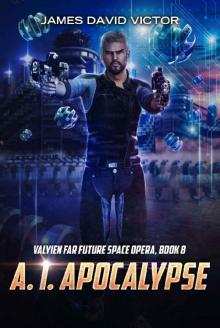 A I Apocalypse
A I Apocalypse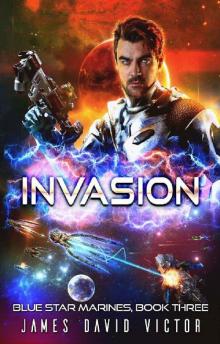 Invasion (Blue Star Marines Book 3)
Invasion (Blue Star Marines Book 3)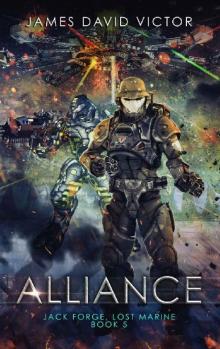 Alliance (Jack Forge, Lost Marine Book 5)
Alliance (Jack Forge, Lost Marine Book 5)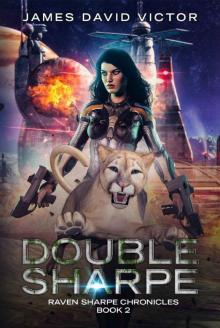 Double Sharpe (Raven Sharpe Chronicles Book 2)
Double Sharpe (Raven Sharpe Chronicles Book 2)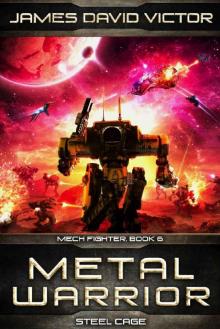 Metal Warrior: Steel Cage (Mech Fighter Book 6)
Metal Warrior: Steel Cage (Mech Fighter Book 6)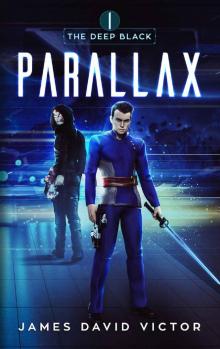 Parallax (The Deep Black Book 1)
Parallax (The Deep Black Book 1)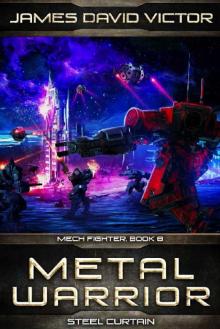 Metal Warrior: Steel Curtain (Mech Fighter Book 8)
Metal Warrior: Steel Curtain (Mech Fighter Book 8)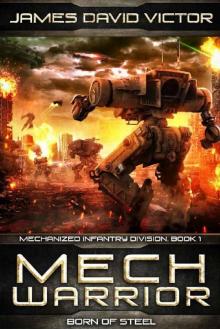 Mech Warrior: Born of Steel (Mechanized Infantry Division Book 1)
Mech Warrior: Born of Steel (Mechanized Infantry Division Book 1) Outcast Marines Boxed Set
Outcast Marines Boxed Set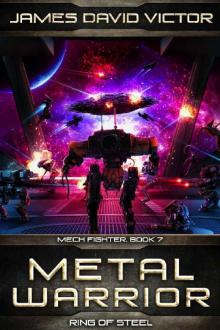 Metal Warrior: Ring of Steel (Mech Fighter Book 7)
Metal Warrior: Ring of Steel (Mech Fighter Book 7) The Elarri Heist (Plundering the Stars Book 1)
The Elarri Heist (Plundering the Stars Book 1)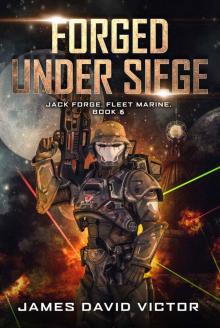 Forged Under Siege (Jack Forge, Fleet Marine Book 6)
Forged Under Siege (Jack Forge, Fleet Marine Book 6)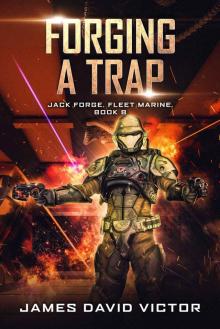 Forging a Trap (Jack Forge, Fleet Marine Book 8)
Forging a Trap (Jack Forge, Fleet Marine Book 8) Daikon (ESS Space Marines Book 2)
Daikon (ESS Space Marines Book 2) Mimic Changes the World
Mimic Changes the World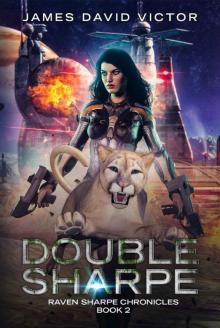 Double Sharpe
Double Sharpe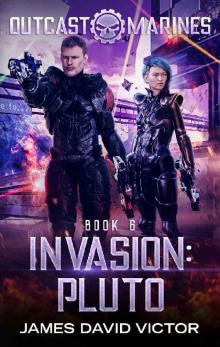 Invasion- Pluto
Invasion- Pluto Mimic and the Fight for Freedom (Space Shifter Chronicles Book 3)
Mimic and the Fight for Freedom (Space Shifter Chronicles Book 3)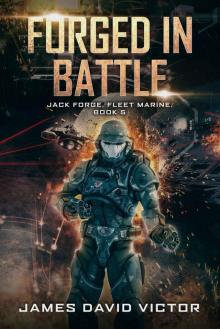 Forged in Battle (Jack Forge, Fleet Marine Book 5)
Forged in Battle (Jack Forge, Fleet Marine Book 5) Lykos (ESS Space Marines Book 6)
Lykos (ESS Space Marines Book 6)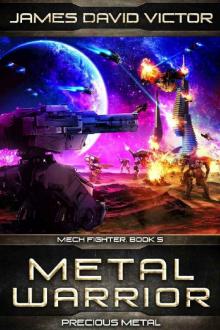 Metal Warrior: Precious Metal (Mech Fighter Book 5)
Metal Warrior: Precious Metal (Mech Fighter Book 5)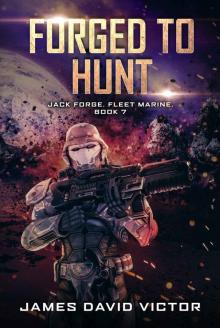 Forged to Hunt
Forged to Hunt Earth Space Service Space Marines Boxed Set
Earth Space Service Space Marines Boxed Set Alpha Rises
Alpha Rises Power of the Seers (Dragon Oracle Book 4)
Power of the Seers (Dragon Oracle Book 4)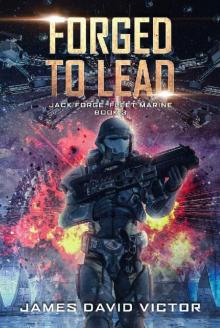 Forged to Lead (Jack Forge, Fleet Marine Book 3)
Forged to Lead (Jack Forge, Fleet Marine Book 3)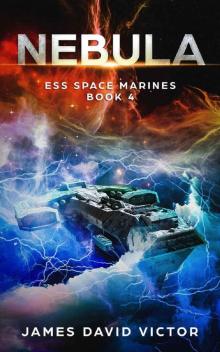 Nebula (ESS Space Marines Book 4)
Nebula (ESS Space Marines Book 4)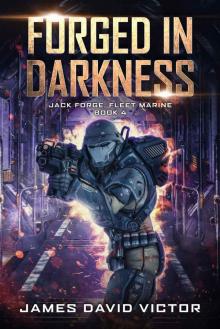 Forged in Darkness
Forged in Darkness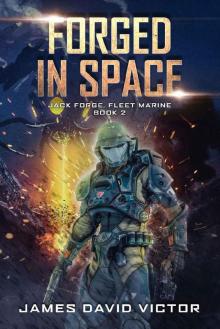 Forged in Space
Forged in Space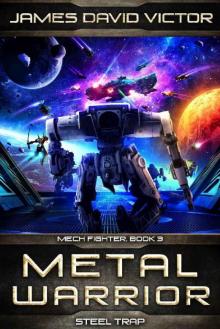 Metal Warrior: Steel Trap (Mech Fighter Book 3)
Metal Warrior: Steel Trap (Mech Fighter Book 3) Mimic and the Space Engineer Boxed Set, Books 1 - 3
Mimic and the Space Engineer Boxed Set, Books 1 - 3 World Breaker Boxed Set (ESS Space Marines Omnibus Book 3)
World Breaker Boxed Set (ESS Space Marines Omnibus Book 3)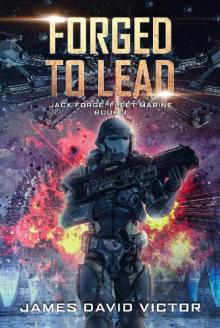 Forged to Lead
Forged to Lead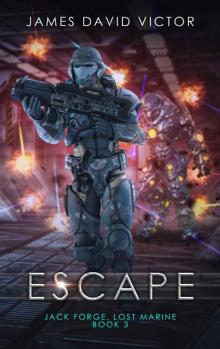 Escape (Jack Forge, Lost Marine Book 3)
Escape (Jack Forge, Lost Marine Book 3)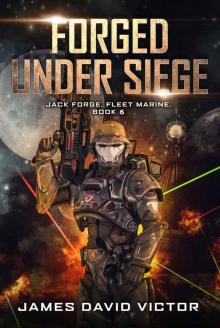 Forged Under Siege
Forged Under Siege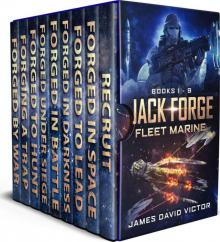 Jack Forge, Fleet Marine Boxed Set (Books 1 - 9)
Jack Forge, Fleet Marine Boxed Set (Books 1 - 9)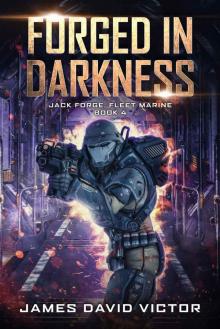 Forged in Darkness (Jack Forge, Fleet Marine Book 4)
Forged in Darkness (Jack Forge, Fleet Marine Book 4) Insurrection
Insurrection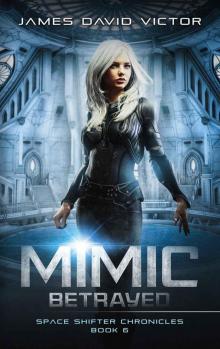 Mimic Betrayed (Space Shifter Chronicles Book 6)
Mimic Betrayed (Space Shifter Chronicles Book 6) Mimic Goes to War (Space Shifter Chronicles Book 5)
Mimic Goes to War (Space Shifter Chronicles Book 5)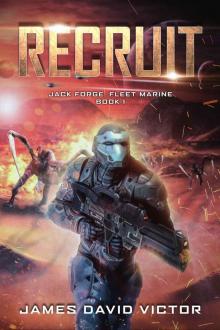 Recruit (Jack Forge, Fleet Marine Book 1)
Recruit (Jack Forge, Fleet Marine Book 1)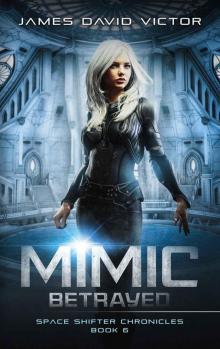 Mimic Betrayed
Mimic Betrayed Power of the Seers
Power of the Seers Mimic and the Journey Home (Space Shifter Chronicles Book 2)
Mimic and the Journey Home (Space Shifter Chronicles Book 2) Mimic and the Space Engineer (Space Shifter Chronicles Book 1)
Mimic and the Space Engineer (Space Shifter Chronicles Book 1)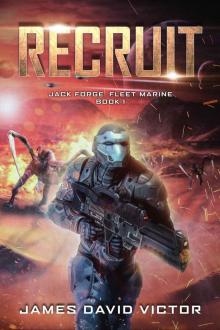 Recruit
Recruit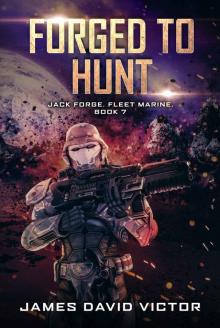 Forged to Hunt (Jack Forge, Fleet Marine Book 7)
Forged to Hunt (Jack Forge, Fleet Marine Book 7)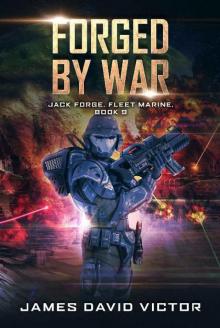 Forged by War (Jack Forge, Fleet Marine Book 9)
Forged by War (Jack Forge, Fleet Marine Book 9)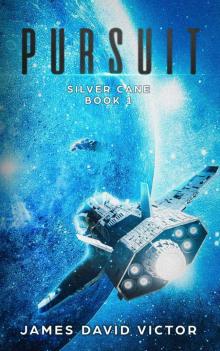 Pursuit (Silver Cane Book 1)
Pursuit (Silver Cane Book 1) Zenith (ESS Space Marines Book 1)
Zenith (ESS Space Marines Book 1) Star Chaser (ESS Space Marines Book 3)
Star Chaser (ESS Space Marines Book 3)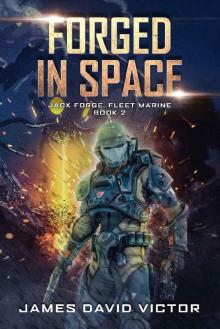 Forged in Space (Jack Forge, Fleet Marine Book 2)
Forged in Space (Jack Forge, Fleet Marine Book 2) Defense (Silver Cane Book 2)
Defense (Silver Cane Book 2) Infiltrate (Silver Cane Chronicles Book 3)
Infiltrate (Silver Cane Chronicles Book 3) Alpha Rises (Valyien Book 2)
Alpha Rises (Valyien Book 2) Mimic Raises an Army
Mimic Raises an Army Alien Evolution (Valyien Book 3)
Alien Evolution (Valyien Book 3)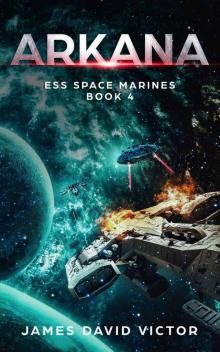 Arkana (ESS Space Marines Book 4)
Arkana (ESS Space Marines Book 4) Lykos
Lykos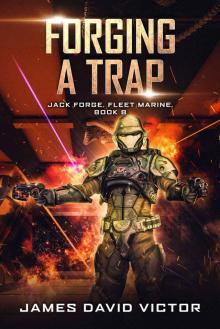 Forging a Trap
Forging a Trap Mimic Goes to War
Mimic Goes to War Earth Space Service Boxed Set: Books 1 - 3 (ESS Space Marines Omnibus)
Earth Space Service Boxed Set: Books 1 - 3 (ESS Space Marines Omnibus) Stranded (ESS Space Marines Book 7)
Stranded (ESS Space Marines Book 7) Mimic Raises an Army (Space Shifter Chronicles Book 4)
Mimic Raises an Army (Space Shifter Chronicles Book 4) Alien Evolution
Alien Evolution